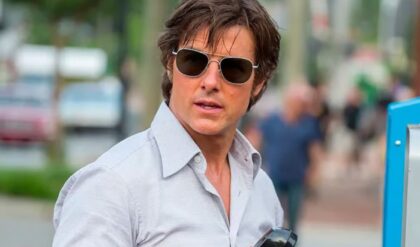Even from her time as a teenage actor, Jodie Foster has been surrounded by important, sometimes controversial cinema. Sure, the Los Angeles-born actor came through the ranks in a handful of Disney movies, but following her effort as a teen sex worker in Martin Scorsese’s Taxi Driver, it became clear that Foster would play a vital role in the film world.
Mature roles arrived after Foster completed her bachelor’s degree at Yale University, including her Academy Award-winning turns in The Accused and The Silence of the Lambs. The former movie had her play a rape victim, while the latter saw a breathtaking performance as a young FBI trainee in the hunt for a vicious serial murderer.

Green Day getting rushed off stage at their show in Detroit after a drone was spotted flying overhead
Elsewhere, films such as Contact, Panic Room, Inside Man and Nyad have seen Foster take on other roles of seriousness, though with varying themes and motives. Outside of her acting work, Foster is also an acclaimed director, and beyond that, she once played an important role in bringing a French classic to an American audience.
Mathieu Kassovitz’s La Haine is widely considered one of the best European films of the 1990s. Released in 1995, starring Vincent Cassel, Hubert Kounde and Said Taghmaoui, the movie tells of a day and night in the lives of three friends from a poor immigrant neighbour in the suburbs of Paris and saw Kassovitz win the ‘Best Director’ prize at the 1995 Cannes Film Festival.
At Cannes that year, Foster was in the audience for La Haine and was wildly impressed by what she saw. In fact, Foster was so blown away that she made it her personal mission to get the film released in her native United States under the name Hate. La Haine takes its title from a line one of the characters speaks: “La haine attire la haine” or “hatred breeds hatred” in English.
During a round table discussion in 1996 in New York, Foster spoke of her decision to help get Kassovitz’s work in front of an American audience. “It’s a totally simple reason,” she said. “I saw the film and completely fell in love with it and wanted to do whatever I could to make sure that as many people in America as possible got to see it.”
Foster went on to express her admiration for Kassovitz’s sincere approach to dealing with violence in La Haine. “I was really shocked to hear a truly sincere and contemporary voice that was as explosive and strong as it was entertaining,” she said. “I was really moved by the film; I think it deals with violence in a way that’s more mature than any film I’ve seen in the past ten years.”
In fact, it was her involvement in the American release of La Haine that led to one of Foster’s crowning life moments. In an interview with The Sunday Times, the actor and director once noted, “There’s a movie I didn’t even make that I helped release in the US, called La Haine. It’s the one I’m the most proud of, even if I had nothing to do with how wonderful it is”. Surely, that’s the highest praise anyone could ever give to a film they hadn’t been directly involved in; undoubtedly, music to the ears of Matthieu Kassovitz.




